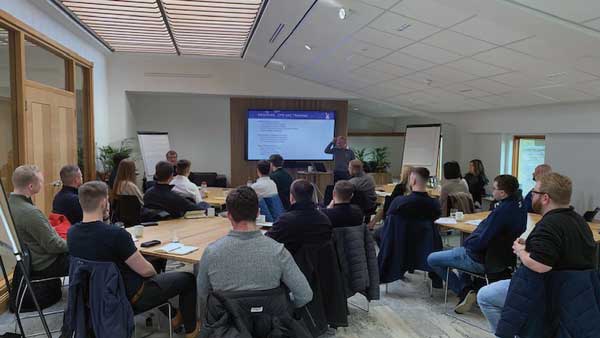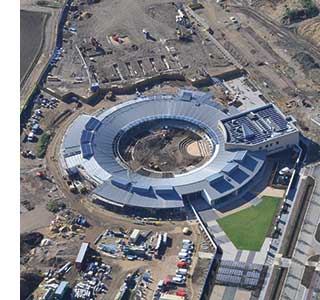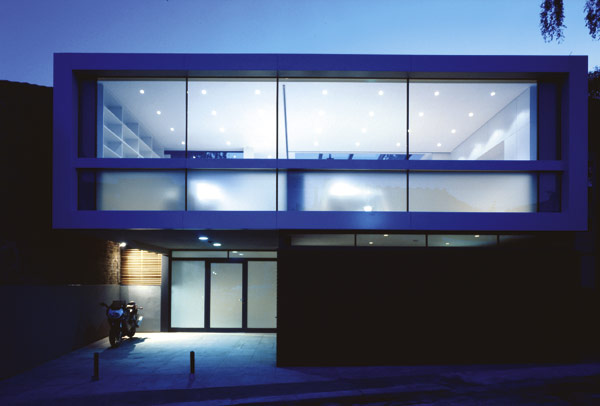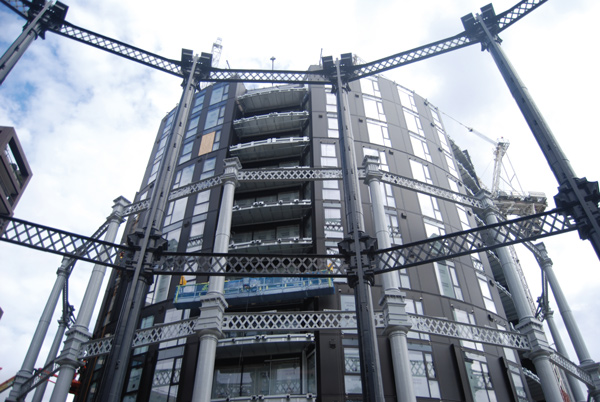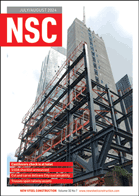Projects and Features
Steel key to meeting housing plans
Constructional steelwork will play a vital role in meeting government objectives of investing £38,000M in housing, a government minister told delegates at a London seminar. Nick Barrett reports.
Trade and Industry Minister Jacqui Smith told over 100 developer delegates at the BCSA/Corus residential seminar — The benefits of steel in residential construction — that delivering the ambitious £38,000M ‘Sustainable Communities’ plan would require vital input from the constructional steelwork industry. The latest phase of the plan, ‘Homes For All’, was launched in January, involving creating 1.1 million new homes in the South East by 2016. Modern methods of construction would be essential for creating the sustainable communities which government wants.
Ms Smith said that a fresh look had to be taken at the construction process and step change improvements in quality, productivity and performance in the construction and operation of buildings would be demanded. Standardisation and repeatability, allowing flexibility in design of structures and external appearance, is an important benefit of Modern Methods of Construction and also a key in driving waste out of the system.
Ms Smith said the quality of design and living space that has already been achieved by using modular housing techniques is truly impressive, adding: “These projects surely lay to rest the myth that a modern approach to construction lacks design quality or rigour.”
She paid tribute to the efforts being made by BCSA members to innovate: “BCSA members are those whose technical knowledge and capabilities are regarded as amongst the best in the world,” she said. “They use advanced production technology — for example CAD programmes and computer-controlled cutting, punching and welding — and have an excellent understanding of how to produce detailed designs, using steel as a structural material, for any given project.”
After hearing case studies from some of the other speakers seminar Chairman Dennis Lennard, Chief Executive of Constructing Excellence, said that the housebuilding industry had a new ratio to learn. The zero : zero : zero ratio refers to the ability of steel to be used with zero temporary works or falseworks; zero wet works; and zero waste.
Nick Whitehouse, Managing Director of Terrapin, said so-called modern methods of construction had been around for 56 years. The material of choice originally was aluminium and then timber. But now, he said, “it is steel and more steel”. There was a need for both hot and cold rolled steel to meet the demands. We need not be precious in how we use steel, as hot and cold rolled went together well.
Alan Shingler of architect Sheppard Robson described the work being undertaken for Kingspan to advance off-site methods. BCSA Technical Consultant Dr Roger Pope outlined the sustainability case for the use of steel.
Bourne Steel Chief executive David Sands outlined the advantages of steel in housebuilding, pointing out the recent major inroads made in the multi-storey sector. Steel could become even more popular, in low rise housebuilding as well, if the understanding of its benefits were more widespread, he said. He concluded: “Steel is the best discovery that can be made by the residential sector.”
Mr Sands also mentioned the experience of an overseas based company which was convinced that concrete would be cheaper than steel, but changed its mind after the not untypical experience of only two tenders being returned. “The concrete supply chain is very short, whereas the structural steel sector remains very competitive,” he said.
BCSA President Tom Goldberg presented a wide range of successful residential project, which had been executed in steel, ranging from student accommodation and sheltered housing to prestige multi-storey blocks with apartments costing up to £4M each. “Whether it is a landmark building or an infill site, steel has the answer,” he said. “The more current of the projects prove that steel is still recognised as the cheaper option.”







